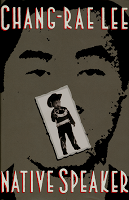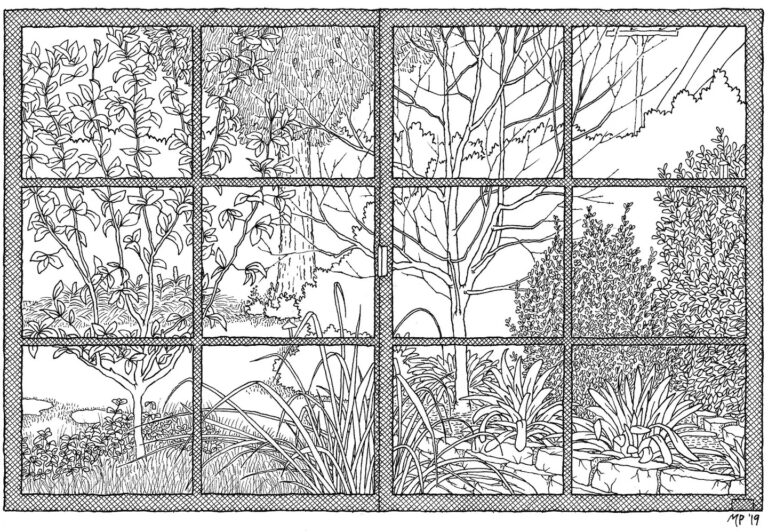The question of what language to write in never occurred to me. The first words I ever spoke were Vietnamese, but coming to America at age four mortally wounded that language for me, depriving it of the culture it needed to grow. At that age, language is like family. Precious and natural as it seems, it can be forgotten and replaced, a process not as painful for the young as it is for the old. Parents do not like to think their children might forget them, and so do native speakers of a given language hate to think that their language might be meaningless to their descendants. Whenever I told other Viet Kieu that my grasp of Vietnamese was poor, they always laughed and denied how bad it could be, until they heard me speak. Circa the 1980s, the idea of a Vietnamese not speaking Vietnamese was incomprehensible, but this amnesia happens as a kind of adaptive mechanism that lets some of us survive in radically new environments.
 If I adopted English, it also adopted me. Some adopted children always worry about the degree to which they belong, while some do not worry at all. I’m a member of the former group, and I still do not know whether that is fortunate or unfortunate. The writings of other people like me–born elsewhere but raised here, or born here but with attachments to their parents’ origins elsewhere–sometimes betray this anxiety of belonging in the very language of writing. Written everywhere across the works of Chang-Rae Lee is an intense desire to be lyrical, to write the perfect sentence, to coin the most beautiful image. In his best-known novel, Native Speaker, his Korean American protagonist struggles with his personal identity and with America’s multicultural identity. Ironically, Henry Park’s English is too perfect; unintentionally, I think, the English of the novel is itself sometimes too perfect. The shadow of the Asian as foreigner or outsider to European or American culture is evident. That foreignness is audible through broken, imperfect, inauthentic English, and one response is for some Asian American authors to write perfectly and unassailably–no slang, no contractions, no foreign words left untranslated, no barbaric yawp. Today, the best-known Asian American authors are among the honor students of American literature, many striving to be valedictorians like the Pulitzer Prize-winning Jhumpa Lahiri.
If I adopted English, it also adopted me. Some adopted children always worry about the degree to which they belong, while some do not worry at all. I’m a member of the former group, and I still do not know whether that is fortunate or unfortunate. The writings of other people like me–born elsewhere but raised here, or born here but with attachments to their parents’ origins elsewhere–sometimes betray this anxiety of belonging in the very language of writing. Written everywhere across the works of Chang-Rae Lee is an intense desire to be lyrical, to write the perfect sentence, to coin the most beautiful image. In his best-known novel, Native Speaker, his Korean American protagonist struggles with his personal identity and with America’s multicultural identity. Ironically, Henry Park’s English is too perfect; unintentionally, I think, the English of the novel is itself sometimes too perfect. The shadow of the Asian as foreigner or outsider to European or American culture is evident. That foreignness is audible through broken, imperfect, inauthentic English, and one response is for some Asian American authors to write perfectly and unassailably–no slang, no contractions, no foreign words left untranslated, no barbaric yawp. Today, the best-known Asian American authors are among the honor students of American literature, many striving to be valedictorians like the Pulitzer Prize-winning Jhumpa Lahiri.
 But perfect English is not the only kind of English for the outsider. There is also the “weird English” of the bad students, the kind of English that critic Evelyn Ch’ien talks about in her book of the same title. One of the writers she discusses is Junot Díaz, who infuses the English language with untranslated Spanish. His English is deliberately not standard, but no one questions his mastery of the language. His defiant work tells us that when we write in a hybridized English, we must not translate between one language and the other. We must not make concessions. In the space where two languages meet, make the English reader learn your tongue, just as you were forced to learn English.
But perfect English is not the only kind of English for the outsider. There is also the “weird English” of the bad students, the kind of English that critic Evelyn Ch’ien talks about in her book of the same title. One of the writers she discusses is Junot Díaz, who infuses the English language with untranslated Spanish. His English is deliberately not standard, but no one questions his mastery of the language. His defiant work tells us that when we write in a hybridized English, we must not translate between one language and the other. We must not make concessions. In the space where two languages meet, make the English reader learn your tongue, just as you were forced to learn English.
The works of Lee and Díaz point to how the Vietnamese in America are not the first population faced with the choice of writing in the language of the homeland or the language of the adopted land. Immigrants, exiles, and refugees from Europe and Asia who preceded the Vietnamese faced the same choice. Vladimir Nabokov and Isaac Bashevis Singer are perhaps the most famous of those who wrote in English, but they wrote in Russian and Yiddish as well. The first lesson they offer is that choices regarding language are not exclusive. One can be bilingual. Linh Dinh is living proof of this, writing with equal versatility in both Vietnamese and English. If his audience is not a wide one, this is due to his formal decisions, not to his status as a latecomer to English. In our own day, we continue to witness people coming to America as adults, who learn to write in English only after their arrival, and yet achieve wide audiences. Successful writers as radically different as Aleksander Hemon and Ha Jin write of Bosnia and China in the most vernacular kinds of English. Le Ly Hayslip is another, even if she is a controversial figure in the Vietnamese community. The second lesson, then, is that learning a new language does not have to be an obstruction to being a popular writer.
The group of diasporic writers I belong to has little choice in regards to language. We were raised in English, either from birth or very close to it. For us, the homeland, if it matters at all, is a state of the imagination to which we return, literally, with our writing. For us, Vietnamese is a dead language, a withered language, a damaged language, or at best, a verbal language. Rarely is it a written one, at least one written well enough for the public. If there is a crisis we undergo regarding language, it is not about whether to write in English or Vietnamese. There is no ethical, political, or cultural problem for us in writing English, for we must write in English. Laying claim to it is the clearest sign of our right to speak in America. To be an author is to be a figure of authority, and authority is something the Vietnamese have sorely lacked in the American imagination. Without this generation born in the United States or raised here, who include Monique Truong, le thi diem thuy, Aimee Phan, Kien Nguyen, and others, the voice of the Vietnamese diaspora in the United States would be severely limited, not in its ability to speak out, but in its ability to be heard. In this dilemma, the Vietnamese again are not unique. Native Americans, Chinese, Eastern Europeans, and many more have produced immigrant literatures in their native languages, a heritage explored now mostly by scholars.
Some would call this an immigrant ghetto, but I prefer to think of it as the underground of American culture. Vietnamese American writers writing in Vietnamese are a part of that underground. They cannot expect to be heard by the general public so long as they write in Vietnamese, not without translation. But we cannot decide beforehand that no “great” writer will emerge from this underground. If the talent is powerful enough, than that writer will emerge, not by her or himself, but with the aid of critics, publishers, and translators. Translating a whole text from one language to another is different than the kind of piecemeal, subservient translation Junot Díaz defies. The kind of translation needed here is a relation between equals.
The conditions of literary emergence from the underground cannot be isolated from culture in general. Vietnamese American writers in English did not simply start to publish in a vacuum, through sheer individual talent and will. They began to emerge because they grew up as part of an English-language literary culture, and benefitted from a literary marketplace affected by the rise of multiculturalism and Asian American writing. Those minority writers who preceded the Vietnamese struggled to be heard, and their voices aided and were aided by political and social movements organized around race, feminism, war, poverty, and imperialism. The Vietnamese writing in the underground must take their cue from these struggles that breached the walls of ethnocentric, nationalist American culture. Those walls cannot be broken down by a writer working in isolation, but only as part of a concerted literary effort involving writers, editors, translators, and publishers, in conjunction with social movements. This relationship between literature and social movements is a loose and uneasy one, but it exists nonetheless. These social movements and the literature related to them created the terms “Asian American” and “Vietnamese American,” and made it possible for me to recognize that it does not matter what language I heard or spoke first. Vietnamese is now my foreign language, English my native one. If this is a problem, it is one whose origins are historical as much as they are personal.
—
“Về Người Viết & Ngôn Ngữ (Vietnamese People and Language)” was originally published on Damau.org on September 5, 2007.


